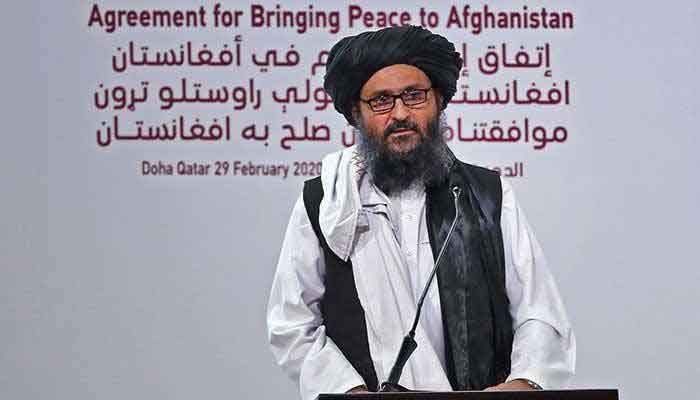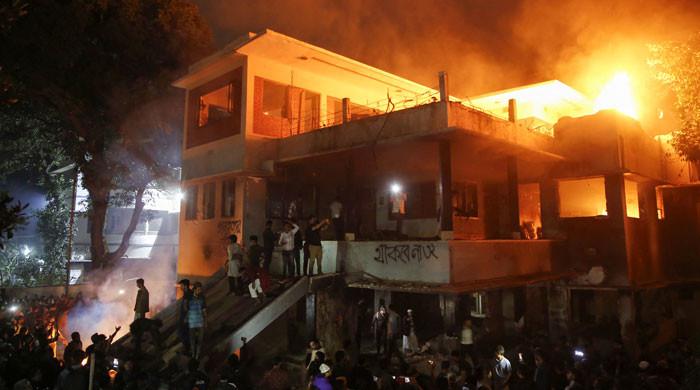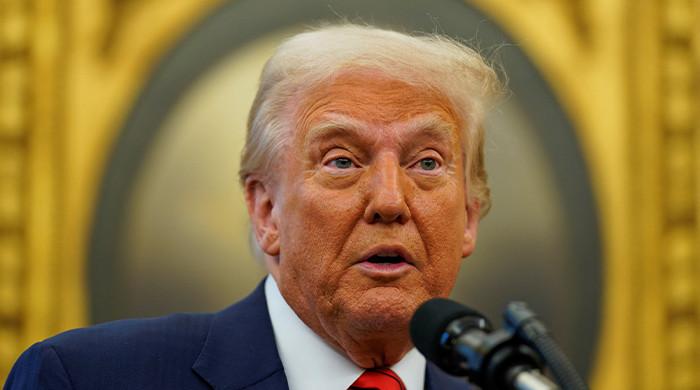Taliban say 'Islamic system' only way to Afghan peace, women's rights
Mullah Baradar says that the rights of all Afghans would be accommodated in the system; asks youth to not leave country
June 20, 2021

- Mullah Abdul Ghani Baradar says a "genuine Islamic system" will end the war, ensure rights for all Afghans, including women.
- Calls on Afghan youths to not leave the country; stresses that minorities, humanitarian organisations and diplomats have nothing to fear.
- "Our very participation in negotiations [...] indicates openly that we believe in resolving issues through (mutual) understanding," Baradar says.
KABUL: The Taliban said Sunday they remain committed to peace talks but insisted a "genuine Islamic system" in Afghanistan was the only way to end the war and ensure rights — including for women.
Talks between the militants and the Afghan government have been deadlocked for months and violence has surged across the country since May when the US military began its final withdrawal.
Despite the rise in violence, Taliban co-founder and deputy leader Mullah Abdul Ghani Baradar said Sunday that the group was committed to the peace talks.
"Our very participation in the negotiations [...] indicates openly that we believe in resolving issues through (mutual) understanding," Baradar said in a statement.
He said the only way to end the conflict in Afghanistan was to establish an Islamic system after the departure of all foreign forces.
"A genuine Islamic system is the best means for a solution to all issues of the Afghans," Baradar said.
His statement acknowledged the fears in Afghanistan and abroad about the kind of system that would emerge — and its impact on women — saying that fell "within the ambit of the intra-Afghan negotiations".
Baradar also assured that the rights of all Afghans including women would be accommodated in that system, according to "the glorious religion of Islam" and Afghan traditions.
But many fear that the Taliban's interpretation of rights will clash with the changes that have happened in Afghan society since 2001.
In May, a US intelligence report claimed the gains made over the past two decades on women's rights would be rolled back if the Taliban returned to power.
The growing fear and uncertainty about the future have forced many Afghans to try and leave, including thousands of men and women who fear reprisals because they worked with foreign forces.
Baradar called on Afghan youths to not leave the country, and also stressed that the Taliban would ensure that minorities, humanitarian organisations and diplomats had nothing to fear.
The recent losses faced by government troops have forced President Ashraf Ghani to change his defence and interior ministers.
On Saturday, he announced the changes and called on the Taliban to make a choice between peace and enmity with the government.
Ghani blamed the Taliban for starting the war and accused them of failing to come up with a plan to establish peace.











